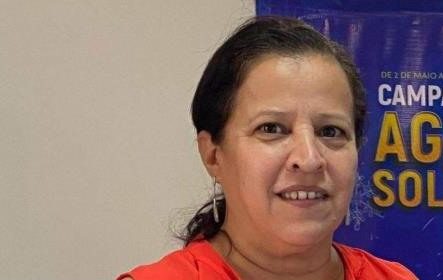BTN News: In a significant political shift in Nicaragua, President Daniel Ortega has appointed Fulvia Patricia Castro Matos as the new head of the Ministry of the Family, Community, Cooperative, and Associative Economy. This move follows the recent diplomatic tensions between Nicaragua and Brazil, which culminated in the expulsion of both countries’ ambassadors. Castro Matos, who was serving as Nicaragua’s ambassador to Brazil, was expelled in a retaliatory action by the Brazilian government after Nicaragua’s decision to oust Brazil’s envoy, Breno de Souza Brasil Días da Costa. The diplomatic rift was triggered by Da Costa’s absence at a crucial event marking the 45th anniversary of the Sandinista Revolution on July 19, 2023.
The change in leadership at the Ministry of the Family, Community, Cooperative, and Associative Economy comes after Justa del Rosario Pérez Acuña, who had held the position since July 2017, was reassigned. Pérez Acuña is now set to serve as an advisor to President Ortega on matters related to the promotion and development of tourism and entrepreneurial ventures within the tourism sector. This reassignment indicates a strategic reshuffling within Ortega’s administration as he continues to solidify his government’s agenda amidst growing international scrutiny.
In a related development, Ortega also appointed Indiana Raquel Fuentes Ramírez as the new Minister of Agriculture, following the resignation of Bosco Castillo. This change is part of a broader cabinet shake-up that reflects Ortega’s intent to consolidate control over key sectors of the government. Fuentes Ramírez, who previously served as the co-director of the National Forestry Institute (INAFOR), will now steer the country’s agricultural policies. Her previous role at INAFOR has been filled by Luz Marina Sándigo Jarquín, who steps into the position as Ortega continues to adjust his leadership team.
The President’s recent decisions have been officially documented and published in Nicaragua’s official government journal, La Gaceta. These appointments, including that of Wilmor Efraín López Martínez as the presidential advisor for traditional and popular culture, underscore Ortega’s strategic approach to maintaining a strong grip on power. The appointments are currently under review by the National Assembly, which is dominated by Ortega’s Sandinista party, and are expected to be ratified without opposition.
Ortega’s government has faced increasing isolation on the international stage, and these latest moves suggest a tightening of control within Nicaragua’s borders as the President seeks to navigate both internal challenges and external pressures. The diplomatic fallout with Brazil is emblematic of the broader tensions between Ortega’s administration and other nations, particularly in Latin America. As Ortega continues to shuffle his cabinet and reposition his government officials, the long-term implications for Nicaragua’s domestic and foreign policy remain to be seen.
In the broader context, these appointments highlight Ortega’s ongoing efforts to reinforce his administration’s authority across various sectors, particularly in areas critical to Nicaragua’s socio-economic fabric, such as agriculture, family economy, and cultural heritage. The realignment within Ortega’s cabinet is a clear signal of his intent to maintain a strong and resilient government structure, even as the country faces significant external and internal challenges.


